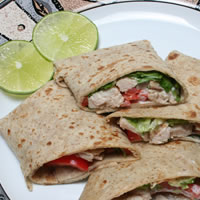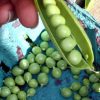For people living with diabetes, managing blood sugar levels is a daily priority. While many are aware of the obvious culprits – sugary drinks, desserts, and candy – hidden sugars lurk in unexpected places, subtly sabotaging your efforts.
Becoming a sugar sleuth and identifying these hidden offenders is crucial for maintaining healthy blood glucose and overall well-being.
Why Hidden Sugars Matter for People with Diabetes
When you have diabetes, your body struggles to regulate blood sugar effectively. Consuming excess sugar, even if it’s “hidden” in seemingly healthy foods, can lead to:
- Blood Sugar Spikes: Rapid increases in blood glucose can cause uncomfortable symptoms and long-term complications.
- Weight Gain: Excess sugar is often stored as fat, making weight management more difficult.
Increased Insulin Resistance: Over time, this can worsen the condition and make it more challenging to control blood sugar. - Increased Risk of Complications: Poor blood sugar control raises the risk of heart disease, nerve damage, kidney disease, and other diabetes-related complications.
Where Are These Hidden Sugars Hiding?
The sneaky thing about hidden sugars is that they go by many names and are present in various processed and packaged foods. Here are some common culprits to be aware of:
- Sauces and Condiments: Ketchup, barbecue sauce, salad dressings, and even pasta sauce can contain surprisingly high amounts of added sugars.
- Processed Meats: Deli meats, sausages, and bacon sometimes have sugar added for flavor and preservation.
- Canned Goods: Canned fruits, vegetables, and beans can be packed in sugary syrups or sauces.
- Breakfast Foods: Flavored yogurts, cereals, granola bars, and instant oatmeal often contain significant amounts of added sugars.
- “Healthy” Snacks: Many protein bars, energy bars, and trail mixes can be loaded with added sugars.
Bread and Buns: Some breads, particularly white bread and hamburger buns, might contain hidden sugars. - Drinks (Beyond Soda): Fruit juices, sweetened iced teas, flavored coffees, and even some sports drinks can be high in added sugars.
- Low-Fat/Fat-Free Products: When fat is removed from foods, sugar is often added to improve palatability. This means low-fat products can still be high in sugar.
How to Become a Sugar Detective
The good news is that you can take control and reduce your intake of hidden sugars. Here are a few tips to get you started:
- Read Food Labels Carefully: Become familiar with the ingredients list. Look out for various names for sugar, including:
- High-fructose corn syrup
- Sucrose
- Glucose
- Dextrose
- Maltose
- Maltodextrin
- Corn syrup
- Cane sugar
- Brown sugar
- Brown rice syrup
- Agave nectar
- Honey
- Molasses
- Tapioca Syrup
- Date Sugar
- White Sugar (Sucrose)
- Turbinado Sugar
- Maple Syrup
- Coconut Sugar
- Palm Sugar
- Maltitol
- Lactose
- Barley Malt Syrup
Remember, ingredients are listed in order of predominance, so the higher sugar is on the list, the more likely the product is loaded with it.
- Focus on Whole, Unprocessed Foods: Prioritize fresh fruits, vegetables, lean proteins, and whole grains. These foods provide essential nutrients without the hidden sugar trap.
- Cook at Home More Often: This gives you complete control over the ingredients in your meals. Experiment with herbs and spices for flavor instead of relying on sugary sauces and dressings.
- Choose Unsweetened Options: Opt for plain yogurt, unsweetened cereals, and unsweetened beverages. You can add natural sweetness with fruit or a touch of stevia or other safe sugar substitutes.
- Be Wary of “Low-Fat” Products: Double-check the nutrition label as these products often compensate for the lack of fat with added sugar.
- Limit Processed and Packaged Foods: The more processed a food is, the more likely it is to contain hidden sugars.
- Practice Portion Control: Even healthy foods can raise blood sugar levels if consumed in large quantities.
- Consult with a Registered Dietitian or Diabetes Educator: They can help you create a personalized meal plan that aligns with your health needs and provides guidance on navigating food labels.
The Benefits of Cutting Back
Reducing hidden sugars in your diet is an essential step toward better diabetes management. It can lead to:
- Improved Blood Sugar Control: Stable blood glucose levels translate to fewer highs and lows.
Weight Management: Cutting back on excess sugar can help you achieve and maintain a healthy weight. - Increased Energy: Stable blood sugar levels can lead to more consistent energy throughout the day.
Reduced Risk of Complications: Better blood sugar control lowers your risk of heart disease, nerve damage, and other diabetes-related conditions. - Improved Overall Health: A diet lower in sugar is beneficial for overall health and well-being.
Becoming a savvy sugar detective is an empowering step towards better control of your diabetes. By diligently reading labels, choosing whole foods, and being aware of the hidden sugars in common products, you can take charge of your diet and pave the way for a healthier and more fulfilling life while managing your diabetes effectively.
Don’t let hidden sugars sabotage your health; take the time to investigate and make informed choices. While diabetics must manage blood sugar, small amounts of sugar are fine occasionally. It’s about portion control and balancing it with medication, diet, and exercise. A doctor or dietitian can advise on individual needs.








